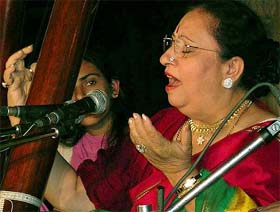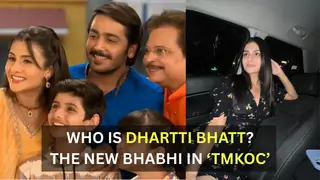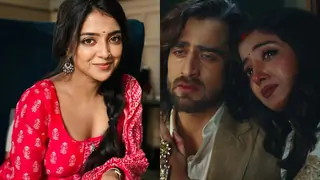The magic called music, the music called life
| Hindustani vocalist Parveen Sultana and violin maestro T.N. Krishnan tune in for the love of music |
Fusion is not just about picking up from here and there and putting it together. That's confusion Parveen
PHOTO: K.V. SRINIVASAN
TILL MUSIC DO US PART Parveen Sultana T.N. Krishnan among musical notes He is a man of few words but master of one of the most expressive instruments. In the hands of T.N. Krishnan, the bow becomes a magic wand and the violin gets a voice. He was just six when he made his concert debut. After accompanying stalwarts such as Ariyakudi Ramanuja Iyengar, Musiri Subramania Iyer and Chembai Vaidyanatha Bhagavathar in the initial years of his career, he has come to occupy centre stage and created a space of his own in the world of music. Despite the demands of the changing times, this vidwan refuses to resort to gimmickry and remains a stickler for tradition.
Begum Parveen Sultana is a child prodigy, whose music and looks have retained their youthful charm. Though she hails from an orthodox Muslim family from Assam, her music-loving father encouraged her to pursue the art. Chinmoy Lahiri of Calcutta was her first guru. He introduced Parveen to Ustad Dilshad Khan, who besides being her guru, became her life partner. With rigorous training and determination, she rose to be a celebrated Hindustani vocalist. Whether elaborating a raga, singing a bhajan or crooning a film song (remember Hame tumse pyar kitna, which won her a National award), she gives varied makeovers to the musical notes. When the two artistes met for a Take Two it was music all the way. . Chitra Swaminathan listened in.
Parveen: Sir, it's truly an honour to do this interview with you.
Krishnan: My pleasure too, because you are a remarkable singer. Remember, 25 years ago after a concert, a few musicians, including you and I, went to eat at Woodlands?
Parveen: Who can forget those days? I used to come almost every month to Madras for a concert. The city was like a second home to me. So many great artistes and wonderful rasikas. Now when I go there I miss all that.
Krishnan: But some of the youngsters are doing a good job. They do not stop with learning or appreciating. Unlike in our times, they don't shy away from asking questions, do not follow things blindly and are forthright about their views.
Parveen: I do agree. I never fault youngsters or discourage them. After all they are our future. My 18-year-old daughter is learning both Hindustani and Western classical. But as far as I am concerned, I cannot compromise on my music. Innovation, experimenting, fusion... fashionable terms in the field of arts today, but they don't appeal to me. Most fusion pieces today are noisy and done un-aesthetically. It calls for a good understanding of all genres and styles. For instance, Ravi Shankar and Yehudi Menuhin; Palghat Mani Iyer and Allah Rakha. Fusion is not just about picking up from here and there and putting it together. That is confusion.
Krishnan: Yes, these pieces should be organised and composed meticulously, for a divine effect. Personally, I have never felt the need to go beyond the classical parameters. Wherever I perform, it is only Carnatic music. Our tradition is so vast that even at this stage I feel there is much to learn. My aim is to make listeners experience peace and enjoy some relaxed moments.
Parveen: For that we need just pure soul, pure swar and taal. Isn't it?
Krishnan: True. And sadhana is the only way to discipline mind and music. No short cuts, easy diversions or over-taking, the route to success here is long-winding and arduous.
Parveen: My gurus would not let me skip riyaaz even in sickness. Now each day I thank them for making me do it. Only practice can give you the sustaining power and keep your energy level high.
Krishnan: But one should practise in the right way, or else it could prove detrimental. Choosing a guru is equally important. People generally go by names, and not vidwat.
Parveen: You should be fortunate to get a good guru and the gurus also should be lucky to get sincere sishyas. Teaching is an art by itself, and a difficult one at that. You should have in-depth knowledge, the right temperament and perseverance. I may be a good singer and performer, but need not be a great teacher.
Krishnan: For the past 35 years, I have also been teaching so I know it quite well. You should teach not only the nuances of the art but also presentation. Audience response depends on the way you showcase your talent.
Parveen: Pahle darshan dhari phir gunbichari. Appearance counts first, qualities come next. Right, sir?
Edited by soulsoup - 19 years ago




























